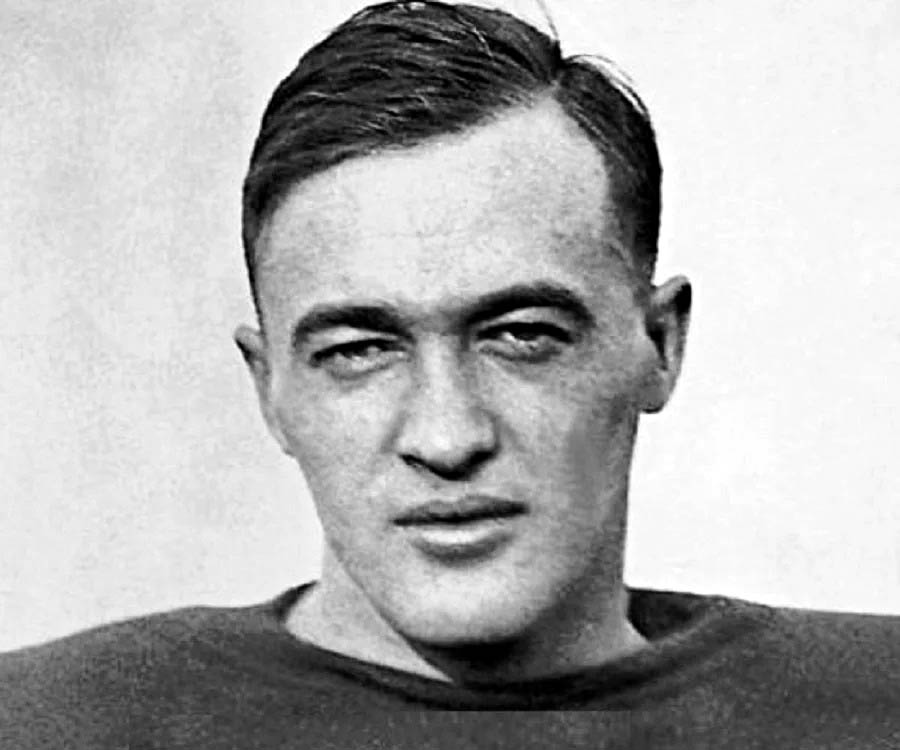(Photo: WikiCommons)
George Gipp, known as “the Gipper,” is considered one of the greatest and most enigmatic players in college football history. Born in 1895 in Laurium, Michigan, Gipp initially excelled in basketball and baseball, not football. He led his high school basketball team to a regional championship and posted a .492 batting average in baseball, playing against men much older than him.
In 1916, Gipp received a conditional baseball scholarship to Notre Dame, and soon after, coach Knute Rockne noticed his remarkable abilities. After seeing Gipp casually punt a football over 60 yards, Rockne convinced him to join the football team, and his dominance on the field began.
From 1918 to 1920, Gipp led Notre Dame in rushing, passing, and scoring each year. He averaged a school-record 8.1 yards per carry in 1920, a mark that still stands. His skill was complemented by a natural instinct for the game, with Rockne noting that Gipp rarely needed instruction, often making the right play without being told.
Off the field, Gipp was known for his unconventional lifestyle. While brilliant, he was disinterested in academics and earned money through billiards and poker. His free-spirited nature extended to his playing style, where he often defied instructions, yet his decisions were often successful.
Despite his success, Gipp’s life was cut short. In late 1920, he became seriously ill with a throat infection, yet continued to play through the pain, leading Notre Dame to another undefeated season. After the final game, he was hospitalized and died on December 14, 1920, at just 25 years old.
Before his death, Gipp is said to have told Rockne to inspire future teams with the phrase, “Win one for the Gipper.” This iconic line, whether or not it was truly spoken, solidified Gipp’s place in history as one of college football’s greatest players, remembered for both his exceptional talent and his unconventional approach to life.
For much more on the immortal George Gipp check out Fighting Irish Preview’s three part series, Part 1, 2 and Epilogue: How Good Was George Gipp?: In Search of George Gipp

